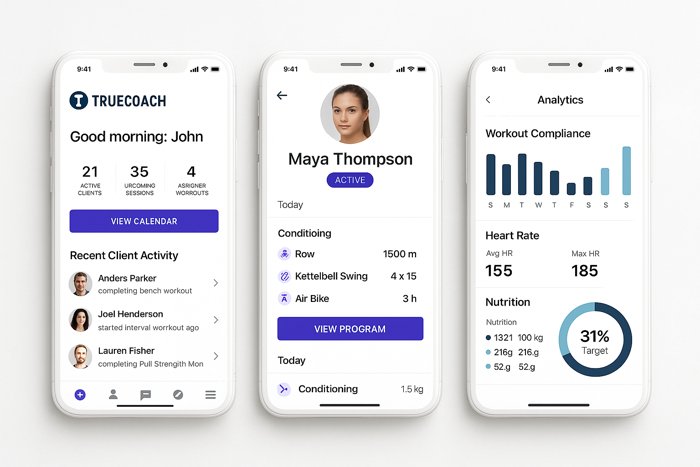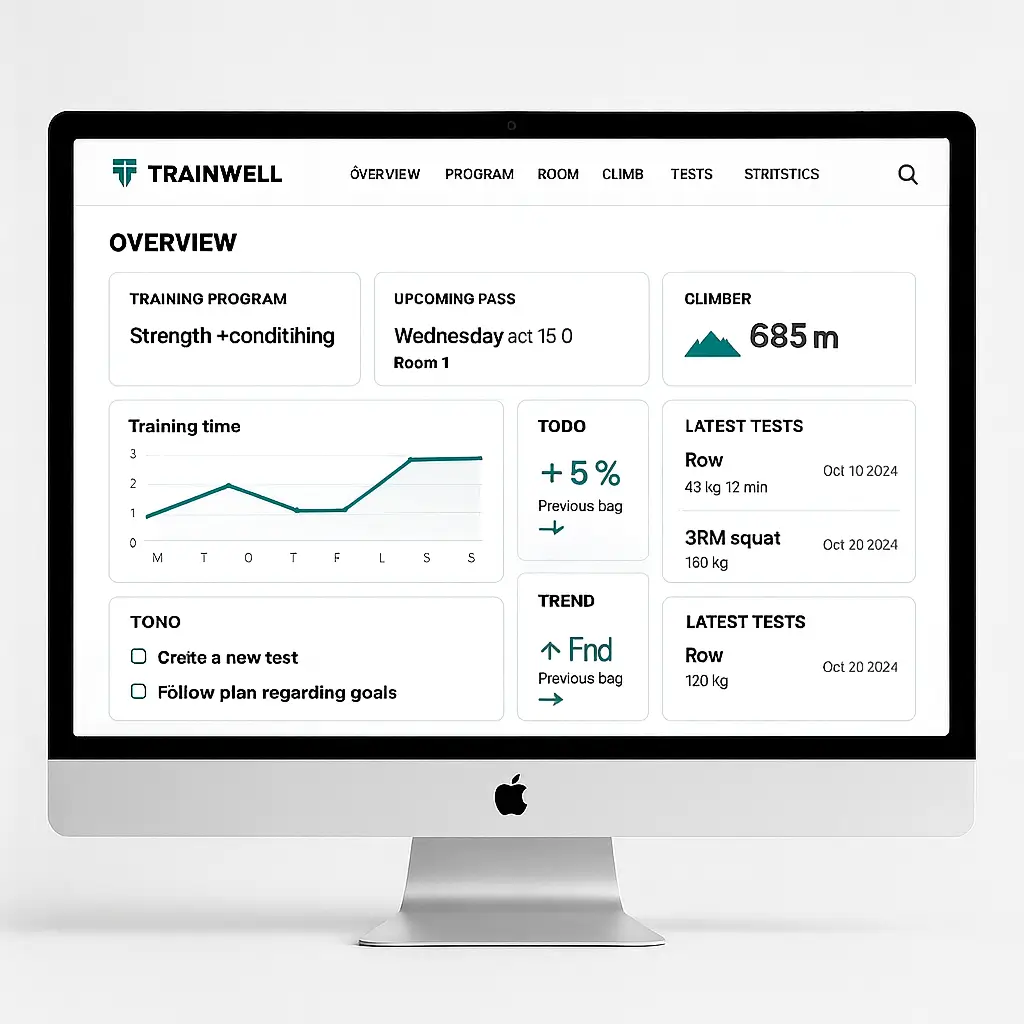When it comes to recovery, not all collagen is created equal. Thorne Collagen Fit vs Collagen Plus is all about choosing the right fuel for your body’s needs.
Thorne is a trusted brand known for clinical-grade supplements with clean, tested ingredients. And these two collagen products represent two powerful directions: Collagen Fit is engineered for athletes, built with performance-boosting ingredients like betaine and nicotinamide riboside. Collagen Plus, on the other hand, targets skin, hydration, and aging — but with enough crossover benefits to mildly support muscle recovery.
In this guide, we cut through the noise and compare what really matters — results, ingredients, and who each product is designed for.
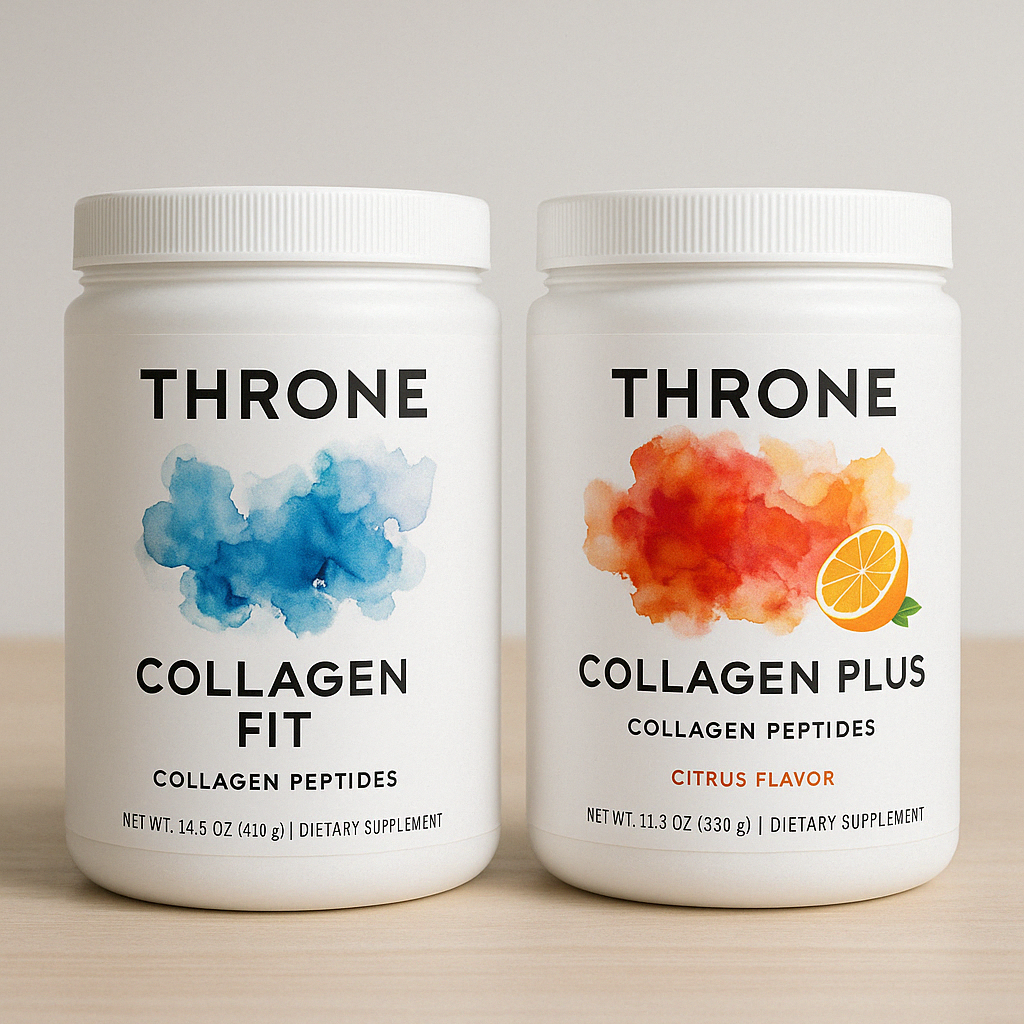
Table of Contents
What Is Thorne Collagen Fit?
This isn’t your average collagen supplement. Thorne Collagen Fit is built for performance — not beauty shelves. Designed for athletes and serious lifters, it goes far beyond what a typical women’s best collagen powder can offer.
It contains clinically-backed ingredients like hydrolyzed collagen and nicotinamide riboside to support joint strength, muscle recovery, and endurance. Wondering how long does collagen take to start working? With a product this potent, many users report noticeable improvements in recovery and mobility within just a few weeks.
RELATED: Collagen vs Creatine 2025 – Which One is Best For You?
Thorne Collagen Fit Ingredients List
If you’re looking for performance-driven recovery, Thorne doesn’t play around. Collagen Fit is packed with science-backed ingredients — not fluff. It’s designed for athletes, but it could easily compete with the best collagen supplement for women’s health thanks to its powerful support for joints, skin, and energy metabolism.
Here’s what’s inside:
- Hydrolyzed Collagen Peptides (Types I & III) – For joint, tendon, and muscle repair
- Nicotinamide Riboside (NR) – A precursor to NAD+ that supports energy and cellular repair
- Betaine (Trimethylglycine) – Enhances muscle performance and hydration
- Vitamin C – Boosts collagen synthesis and immune function
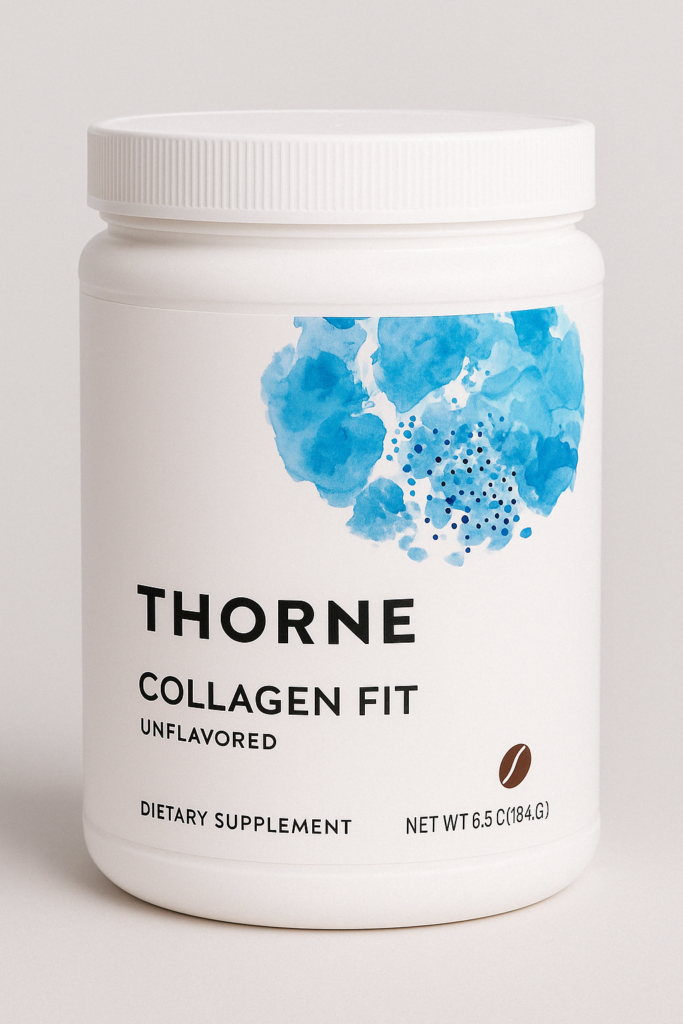
What Is Throne Collagen Plus?
Don’t confuse this with your typical collagen skin plus supplement — Thorne Collagen Plus is a clinical-grade formula that supports both skin health and recovery at a deeper level. It blends hydrolyzed collagen powder, ceramides, hyaluronic acid, and nicotinamide riboside to target skin elasticity, hydration, and cellular energy.
While it’s often seen as a collagen plus pulver focused on beauty, it goes beyond just glowing skin. This is the kind of formula that competes with premium products like Sparkle Skin Boost Plus, but with added muscle in terms of scientific backing.
And yes — if you’ve been wondering, does collagen help sore muscles? The answer is: it can. Ingredients in Collagen Plus support connective tissue and may aid in mild post-workout recovery — though it’s not as targeted as Collagen Fit when it comes to athletic performance.
Thorne Collagen Plus Ingredients List
Think of this as skin care collagen plus—but optimized. Thorne Collagen Plus isn’t just another beauty supplement. It’s a high-quality blend designed to support skin hydration, elasticity, and deeper cellular health.
Here’s what’s inside:
- Hydrolyzed Collagen Peptides (Types I & III) – For skin firmness and connective tissue support
- Ceramides – To improve skin barrier function and lock in moisture
- Hyaluronic Acid – Hydrates the skin from within
- Nicotinamide Riboside – Boosts NAD+ production to support cellular energy and skin longevity
- Vitamin C – Enhances natural collagen production
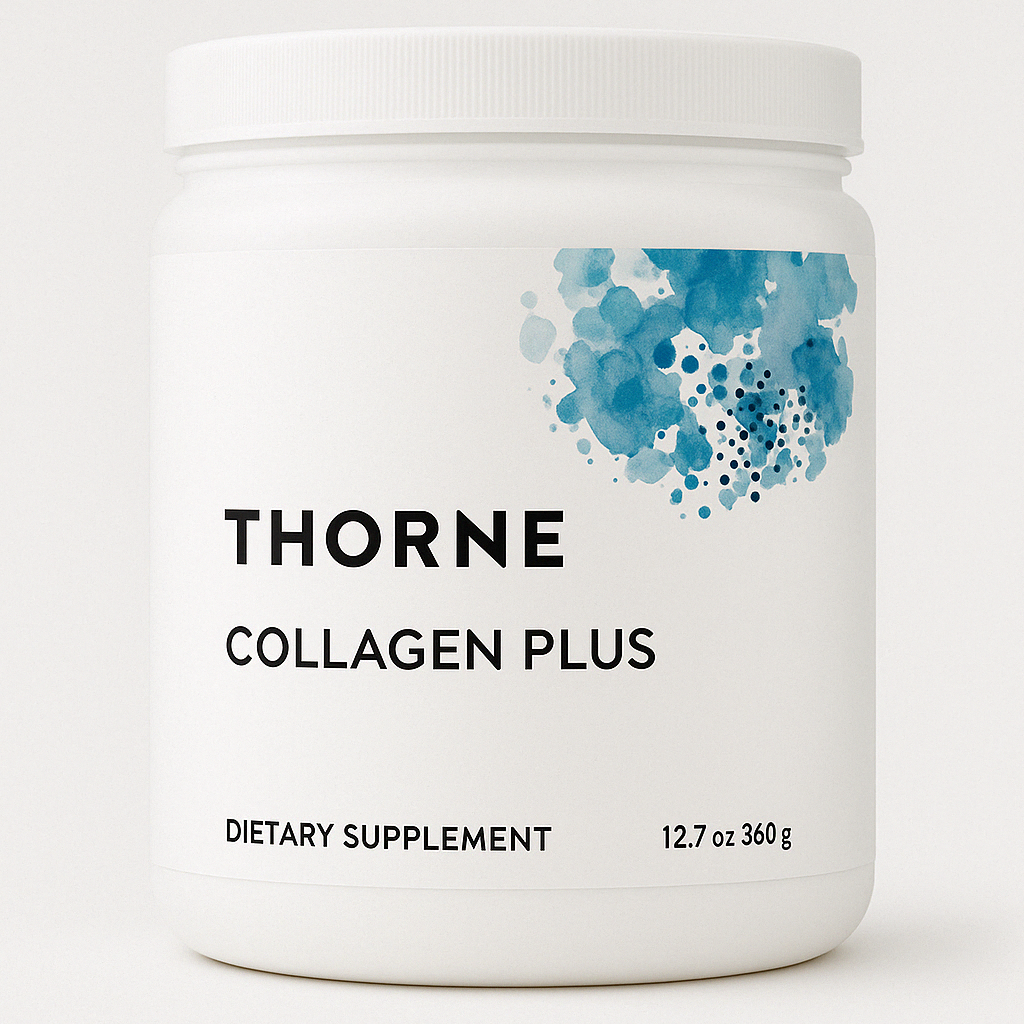
Which Is The Best Collagen For Muscle Recovery?
Recovery Support – Thorne Collagen Fit
When it comes to recovery, Thorne Collagen Fit is in a league of its own. This isn’t just another collagen powder for muscle repair—it’s clinically designed for athletes who demand more than just basic joint support.
With hydrolyzed collagen peptides, betaine, and nicotinamide riboside, it works on multiple levels: repairing connective tissue, supporting mitochondrial energy, and reducing soreness after intense training.
Recovery Support – Thorne Collagen Plus
While Thorne Collagen Plus isn’t built for athletes first, it still offers recovery support through improved skin elasticity and connective tissue health. The formula focuses on beauty and cellular rejuvenation — but it has crossover benefits for light post-workout recovery.
So, how long after taking collagen powder will I see results? With Collagen Plus, many users notice smoother skin and better hydration within 2–4 weeks. For deeper recovery effects, give it 6–8 weeks of consistent use.

Ingredients For Performance Thorne Collagen Fit vs Collagen Plus
Ingredients for Performance – Thorne Collagen Fit
- Hydrolyzed Collagen Peptides (Types I & III): Supports muscle recovery, joint health, and connective tissue strength
- Betaine (Trimethylglycine): Enhances physical performance, muscle endurance, and cellular hydration
- Nicotinamide Riboside (NR): Boosts NAD+ levels, improving mitochondrial function and cellular energy
- Vitamin C: Essential for collagen synthesis and antioxidant protection, aiding in tissue repair post-workout
Ingredients for Performance – Thorne Collagen Plus
- Hydrolyzed Collagen Peptides: Supports skin and connective tissue recovery
- Nicotinamide Riboside: Promotes cellular energy and healthy aging
- Hyaluronic Acid: Aids joint lubrication and skin hydration
- Ceramides: Strengthen skin barrier, minor support for tissue health
- Vitamin C: Supports collagen production and recovery
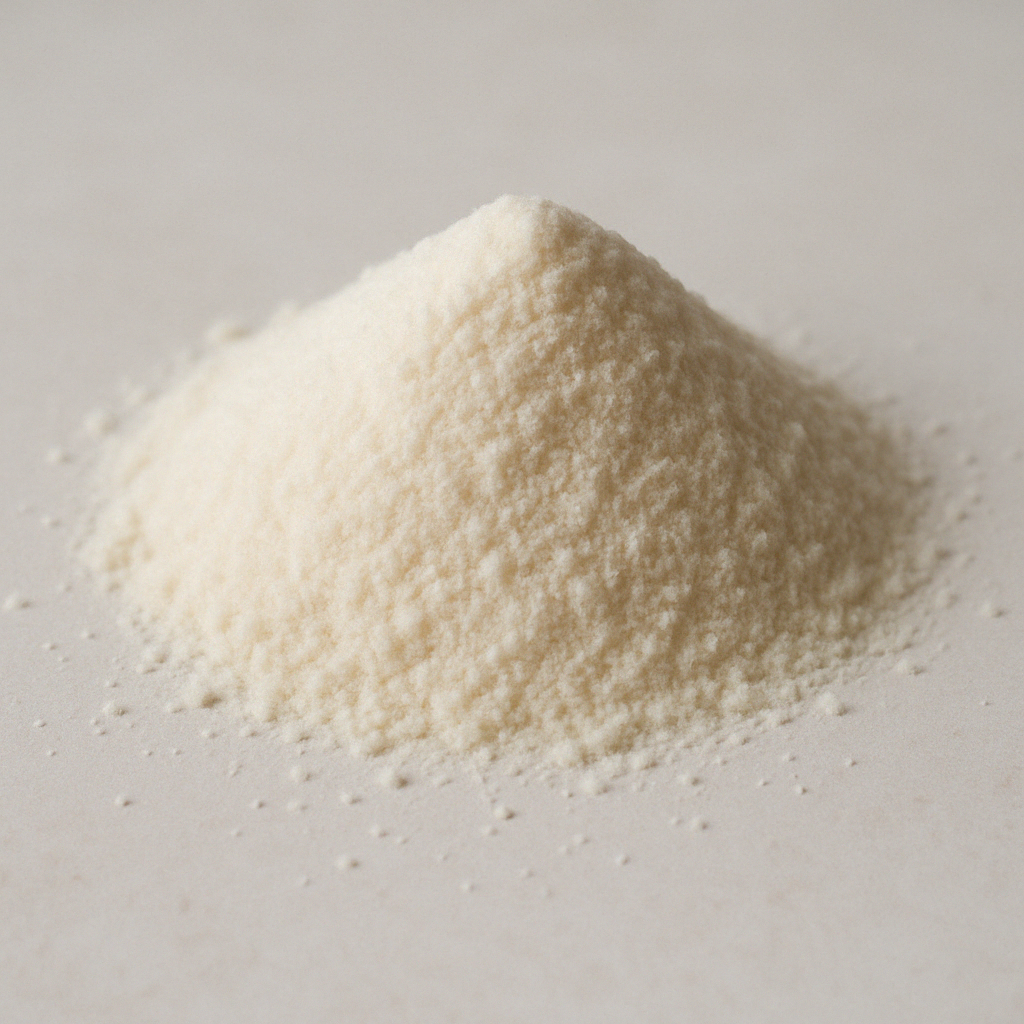
Key Difference Between Thorne Collagen Fit vs Collagen Plus
When you’re serious about recovery, it’s not just about collagen — it’s about the right collagen. So, what’s the key difference between these two?
Thorne Collagen Fit is performance-driven. It’s designed for athletes looking for the best collagen for joints and muscles — especially those who demand fast recovery, joint support, and muscular endurance.
Thorne Collagen Plus, on the other hand, leans toward beauty and cellular wellness. It supports skin elasticity, hydration, and healthy aging, with light benefits for post-workout recovery.
Thorne Collagen Fit – Best For:
- Active individuals and athletes
- Muscle recovery and joint protection
- High-intensity training support
- Performance-driven routines
Thorne Collagen Plus – Best For:
- Skin health and hydration
- Light fitness recovery
- Anti-aging and wellness routines
- Those combining beauty + health goals

Final Verdict – Which Collagen Should You Choose?
After breaking down Thorne Collagen Fit and Thorne Collagen Plus, it’s clear: both are premium supplements — but serve different goals.
The Nutrition Ports Team has carefully analyzed their formulas, and if your focus is muscle recovery and performance, Collagen Fit stands out. It’s built for athletes, active lifestyles, and those needing fast, targeted support for joints and muscles.
That said, while Collagen Plus is designed with beauty and skin health in mind, its ingredients like nicotinamide riboside and collagen peptides still offer real benefits for mild muscle recovery and tissue support.
And if you’re wondering, how long for collagen supplements to work? Most users report noticeable improvements within 2 to 8 weeks — depending on consistency, dosage, and your body’s needs.
FAQs
Is collagen Good For Working Out?
Yes — collagen supports joint health, muscle recovery, and connective tissue strength, making it a smart addition to any workout routine.
What Is The Benefits Of Collagen Plus Vitamin C?
Combining collagen with vitamin C enhances collagen synthesis, supporting skin elasticity, joint health, and wound healing.
Full Rating – Thorne Collagen Fit
Product Brand: Thorne
Product Type: Collagen for Performance & Recovery
Product Price: $53
Product In-Stock: Yes
Editor’s Rating: ★★★★☆ (4.5/5)
Summary: Formulated with 15g of grass-fed collagen peptides and nicotinamide riboside, this supplement supports muscle recovery and joint health, making it ideal for active individuals.
Full Rating – Thorne Collagen Plus
Product Brand: Thorne
Product Type: Collagen for Skin & Wellness
Product Price: $63
Product In-Stock: Yes
Editor’s Rating: ★★★★☆ (4.2/5)
Summary: Beauty-focused collagen with support for skin, hydration, and mild recovery. Great for wellness-focused users.
Transparency & Disclosure
At Nutrition Ports, we believe in full transparency. We don’t use affiliate links and we don’t earn commissions from any of the products we write about. Our content is completely independent, created to inform and guide—not to sell.
The product visuals you see are AI-generated to support the information we share. They are not official images, nor are they used for advertising purposes.
Have suggestions or feedback? We’d love to hear from you—your input helps us improve and keep things real.




